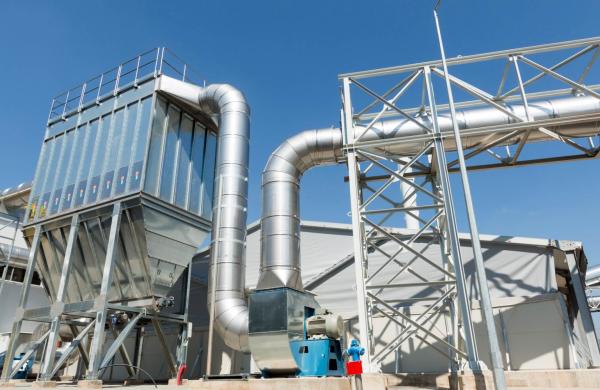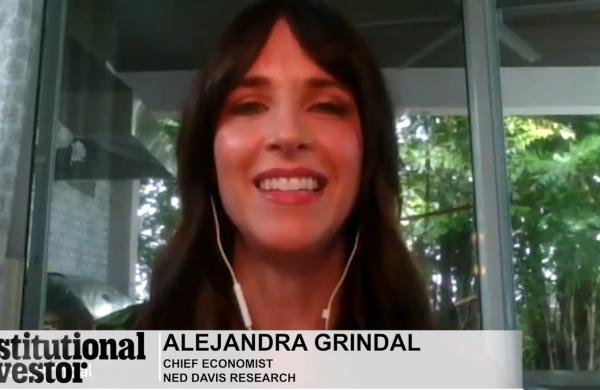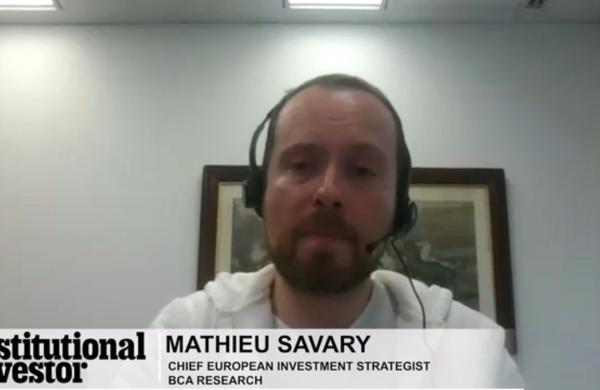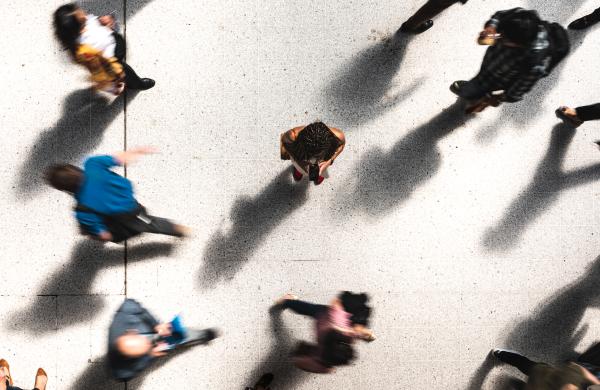The U.S. capital is taking strict security precautions for the IMF-World Bank meeting. But with a little planning and prudence, you can avoid trouble and still get out and about.
By Lois Madison Reamy
September 2002
Institutional Investor Magazine
When the World Bank and the International Monetary Fund convene in Washington late this month for their joint annual meeting, thousands of protesters will also arrive, creating headaches not only for development bankers but for anyone traveling to the capital. A year after the terrorist attacks on Washington and New York, security will be extra tight, and getting around is sure to be difficult.
Washington will summon all its law enforcement strength, "from the Metropolitan Police Department, the FBI and the U.S. Park Police to the National Zoo Police," predicts Ed Rudzinski, general manager of the Marriott Wardman Park Hotel. "Security is ten times greater now than it was before 9/11."
That zoo reference is no joke: The Marriott, which had been scheduled to host this year's meetings as it usually does, is around the corner from the National Zoo. Last month, however, the U.S. government, which hosts the meetings, decided to confine them to IMFWorld Bank headquarters in downtown Washington (though that, too, could change).
PostSeptember 11, heightened concern over terrorism means that travelers to Washington should "be prepared for random airport searches -- no one is exempt," says David Steigman, a spokesman for the newly created Transportation Security Administration. Washington's airports already have the tightest security in the nation: Passengers must remain seated on the 30-minute approach into and departure from Ronald Reagan Washington National Airport and for the entire one-hour flight from New York LaGuardia. If a passenger gets up and stands in the aisle, the plane is supposed to be diverted to Dulles International, farther out. And the private Signature Airport for general aviation at National, once swarming with corporate jets, has been closed since September 11.
The attacks have directly affected this year's Fund- Bank meetings. Most countries have reduced their delegations, so fewer bankers will be present, making for a smaller event. The formal meetings have been shortened from four days to two, September 28 and 29, taking advantage of a weekend's lighter traffic and smaller crowds.
The Mobilization for Global Justice, the umbrella coalition that unleashed some 20,000 demonstrators at the April 2000 IMFWorld Bank meetings in Washington, resulting in 600 arrests, expects only about 10,000 protesters this time around. Steve Kretzmann, a spokesman for the group, says that the appeal of confrontational demonstrations dwindled after the September 11 attacks, which deeply affected many activists. This month protesters will be confined to specific areas, such as the Ellipse between the White House and the Washington Monument. But their agenda also calls for a symbolic "quarantine of the diseases of privatization and profit-before-people at the source," that is, the IMF's and World Bank's meeting sites.
Although many participants at the Fund-Bank meetings will have security details provided by their governments and corporations, most business travelers to Washington won't be so fortunate. Here are some tips for avoiding the strain of traveling to a capital that's on high alert:
Stay plugged in. For $25 a trip, you can book the same electronic travel advisory service used by World Bank officials: Annapolis, Marylandbased IJet Travel Intelligence provides advisories via laptop, BlackBerry, cell phone and other e-mail enabled devices and is already issuing alerts on the IMFWorld Bank meetings (phone: [410] 573-3860; Web site: www.ijet.com). You can also get information on the protests from the Mobilization for Global Justice (www.dc@indymedia.org).
Know the new rules for air travel. The Transportation Security Administration explains them on its Web site (www.tsa.gov).
Keep a mobile phone on hand. If your phone is not compatible with a U.S. cellular network, you can reserve one through your hotel. Cars are no longer allowed to line up and wait for passengers at public spaces in Washington, so if you've arranged for a car and driver to meet you at the airport, you'll need to call the livery service once you've arrived.
Consider not flying into Washington. Travelers from New York, for example, can avoid airport delays and hassles by taking ground transportation to the capital. The trip is about four hours by car; limo companies offer city-to-city rates of about $600 -- comparable to air fare for a party of three. A faster, less expensive alternative is Amtrak's Metroliner: $137 for a three-hour trip.
Send your bags ahead of you. This step can save up to two airport hours for each leg of your flight. For $60 to $70 an item, Boca Raton, Floridabased Virtual Bellhop Service will pick up your bags and deliver them to your hotel before you arrive; they even clear Customs for you. The service extends to most major cities in the U.S. and Central and South America, as well as Amsterdam, Berlin, Düsseldorf, London, Montreal, Quebec and Sydney. Allow one to two days ([561] 367-6177; www.virtualbellhop.com).
Hire a car. Even though the IMF, concerned about limo gridlock, is providing shuttle service to its meetings, a professional driver can help you slip past the other traffic snarls that are sure to occur. At Carey Worldwide Chauffeured Service, $2,903 buys 40 hours in a customized Lincoln Town Car ([703] 892-2000). Dav El Chauffeured Transportation Network offers a $3,000 plan that covers five ten-hour days; vehicles include Cadillac Escalade SUVs and Mercedes-Benz S500 sedans ([617] 887-0900; ask for their IMF coordinator, James Mailhot). Both companies are offering special IMF rates and customer assistance at the Washington airports.
Take advantage of hotel services. Several hotels, including the Jefferson and Swissôtel Watergate, let guests check in from the hotel's car during the ride in from the airport. The Four Seasons routinely arranges for Brooks Brothers, Neiman Marcus and Nordstrom to deliver a selection of suits and provide a tailor to guests who've lost their luggage. Some hotels, like the Willard InterContinental, will book a personal trainer to jog with you. And many have superb party facilities: The Hay-Adams hotel's roof deck -- which only books private parties -- overlooks the White House.
Stay outside of the city. Washington's suburbs boast the rare quiet retreat, like the 45-room, federal-style Morrison House in Alexandria, Virginia (www.relaischateaux.com/morrisonhouse). The 315-room, sports-oriented Doubletree Rockville in Rockville, Maryland, is an easy Metro ride from downtown D.C. (www.doubletreerockville.com).
Explore. "If you want to escape, you can change into chinos or jeans after the meetings and basically disappear, because the city is so ethnically diverse and the nightlife is decentralized," says George Vassiliou, financial adviser at Prudential Securities in Washington. He'd head for fashionable Georgetown; Adams-Morgan, a funky neighborhood near the Marriott Wardman Park; or Bethesda, Maryland, which offers lively bars and restaurants just six miles from downtown Washington.
Last, stay alert. Even with strict security measures, a smaller number of protesters and a shorter IMFWorld Bank meeting schedule, trouble could erupt. When you're moving around the city, pay attention to your surroundings and "be prepared to change your movements at a moment's notice," says Marriott's Rudzinski. "If you see an angry crowd outside your window, stay in."
Staying in might not be so bad, depending on where you are: The Four Seasons has a soundproof spa called the Quiet Room, and adjacent to the Ritz-Carlton is Splash, part of a 100,000-square-foot sports club. After tense days of travel, meetings and protests, you might decide that there are worse things than being restricted to a hotel with a pool and a sauna.
Safe bets for dining
If you manage to break away from the meetings and venture past the police and protesters, you'll find excellent dining in Washington. You might even find the First Family as your dinner companions.
The George W. Bush clan favors Jeffrey's, a slice of Texas deep in the heart of D.C., at the Swissôtel Watergate in Foggy Bottom. You won't find huevos rancheros and refried beans on this menu but fork-tender Texas tenderloin and fried Gulf oysters. Celebrity sightings are not uncommon ([202] 965-2300).
Like Jeffrey's, many of Washington's best restaurants are found in hotels, such as the Willard Room at the grand old Willard InterContinental, two blocks from the White House on Pennsylvania Avenue. Hung with crystal chandeliers, the high-Victorian dining room co-starred with Tom Cruise in Steven Spielberg's recent Washington thriller, Minority Report. The new French chef's seasonal menu sparkles, too ([202] 628-9100).
Across Lafayette Square from the White House, the Hay-Adams hotel's richly appointed Lafayette restaurant and Off the Record bar recently reopened after an $18 million hotel renovation ([202] 347-3000).
Despite its Angeleno name, Melrose, at the Park Hyatt near Georgetown, is lauded for its regional produce and outstanding service ([202] 789-1234).
Café 15 at the new Sofitel Lafayette Square hotel is run by jet-setting three-star Michelin chef Antoine Westermann ([202] 730-8800). Six blocks north of the White House, the new Washington Terrace hotel features 15 Ria restaurant and bar, a shrine to bourbon: You can choose from 26 labels and douse your burger in bourbon ketchup ([202] 232-7000).
Washington's best restaurants aren't limited to hotels. Many local diners favor Rue Lepic, a spacious, art-filled addition to the cozy Bistrot Lepic in Georgetown ([202] 333-2738). Ristorante Tosca serves impeccable northern Italian cuisine in understated, modern downtown surroundings ([202] 367-1990).
If slipping past barricades and dodging protesters has left you in something of a cloak-and-dagger mood, you may want to investigate the restaurants at Washington's new International Spy Museum (where, one recent visitor reports, "James Bond meets reality"): Zola and the informal Spy City Café ([202] 654-0999). -- L.M.R.





